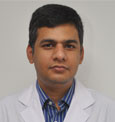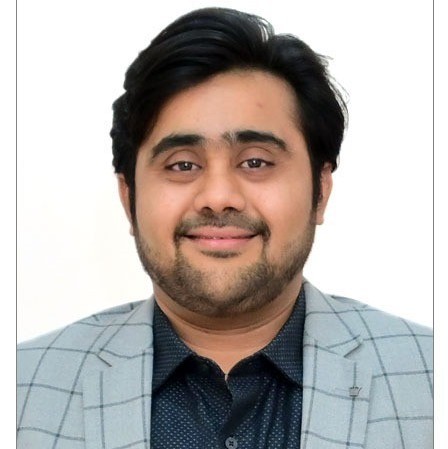What Is Neurology?
Neurology is the branch of medicine concerned with disorders of the nervous system. Neurologists from the best Neurology Hospital in Kondapur treat patients who suffer from neurological diseases such as epilepsy, multiple sclerosis, Parkinson’s disease, Alzheimer’s disease, stroke, migraine headaches, traumatic brain injury, spinal cord injuries, neuromuscular disorders, peripheral neuropathies, movement disorders, sleep disorders, psychiatric illnesses, dementia, and many others.
Neurology deals with the study of the nervous system. The central nervous system (CNS) consists of the brain and spinal cord, and the peripheral nervous system (PNS), includes the parts of the nervous system outside the CNS. The PNS comprises sensory neurons, motor neurons, and autonomic neurons. Sensory neurons detect stimuli such as light, touch, heat, pain, pressure, sound, smell, and taste, while motor neurons control muscle contraction and relaxation. Autonomic neurons regulate involuntary functions such as heart rate, blood pressure, breathing, digestion, sexual function, sweating, urination, and defecation.
Diagnosis
A neurologist uses a combination of medical history, physical exam, diagnostic tests, and imaging to diagnose a wide variety of neurological problems. Diagnosing a problem requires identifying the underlying cause and determining if there are any complications. For instance, a doctor might ask questions about past illnesses, general health habits, family history, and previous experiences with similar symptoms. He/she then performs a complete physical exam and looks for abnormalities in body systems and structures. A doctor might perform blood work, urine analysis, x-rays, computerized tomography (CT), magnetic resonance imaging (MRI), ultrasound, electroencephalography (EEG), lumbar puncture, electromyogram (EMG), nerve conduction velocity, evoked potentials, and electrocardiograms (EKG). Imaging studies include CT scans, MRI, positron emission tomography (PET), single photon emission computed tomography (SPECT), and angiography.
Treatment
The Top neurology hospital in Kondapur treats patients with a range of conditions including seizures, headaches, strokes, Parkinson’s disease, Alzheimer’s disease, depression, anxiety, autism, attention deficit hyperactivity disorder (ADHD), migraines, chronic fatigue syndrome, fibromyalgia, restless leg syndrome, narcolepsy, and others. Treatments vary depending on the specific condition and individual patient characteristics. Some treatments involve medication while others require surgical procedures, psychological counseling, exercise programs, occupational therapy, speech therapy, and other interventions.
Neurology Department
The Neurology Department at the Krishna Institute of Medical Sciences houses a team of proficient neurologists who are equipped with the top-notch technology, cutting edge infrastructure and state-of-the-art facilities to provide world-class care to their patients with a human touch.
With a patient-friendly approach, the Department of Neurology at the KIMS Hospitals has been founded in 2004 and is touted as the Top neurology hospital in Kondapur. Be it complex neurological disorders or simple issues, we make sure to treat each issue with the least amount of complications at affordable rates. The proficient doctors at our Neurology Hospital in Kondapur treat myriad neurological disorders like the ones mentioned below.
Neurological Disorders
There are over 100 types of neurological disorders. Some common examples include:
1. Epilepsy – seizures occur due to abnormal electrical activity in the brain.
2. Multiple Sclerosis – a demyelinating autoimmune disease affecting the myelin sheath surrounding axons in the brain and spinal cord.
3. Stroke – interruption of blood flow to the brain caused by a vascular event. Strokes can be either hemorrhagic or ischemic. Hemorrhagic strokes cause bleeding inside the skull whereas ischemic strokes involve blockage of arteries supplying oxygenated blood to the brain.
4. Migraine Headaches – severe throbbing headache accompanied by nausea, vomiting, photophobia, phonophobia, neck stiffness, and sometimes visual disturbances.
5. Sleep Apnea – episodic cessation of breathing during sleep.
6. Spinal Cord Injury – damage to the spinal cord causes paralysis below the level of injury. Spinal cord injuries can range from complete severance of the spinal cord to milder injuries involving only partial disruption of the neural pathways controlling voluntary movements.
FAQs
1. What are dementias?
Dementias are a group of chronic mental disorders marked by impaired intellectual functioning and deterioration of personality. Dementias are classified according to their underlying pathophysiology-
1. Vascular dementias – associated with cerebrovascular disease, including atherosclerotic vascular disease and cerebral amyloid angiopathy.
2. Neurodegenerative dementias – associated with aging, Alzheimer’s is best known.
3. Toxic/metabolic dementias – associated with toxic substances, e.g., heavy metals, alcohol, medications, lead, arsenic, manganese, and mercury.
4. Infectious dementias – associated with viral infections, particularly HIV infection.
5. Miscellaneous dementias – associated with various systemic disorders, e.g., thyroid dysfunction, vitamin B12 deficiency, Wilson’s disease, and Creutzfeldt–Jakob disease.
2. What is Alzheimer’s disease?
Alzheimer’s disease is a progressive neurodegenerative condition resulting in cognitive impairment and memory loss.
3. Which type of technology is used at the KIMS hospitals?
The KIMS Hospitals uses state-of-the-art equipment and technology like the different electrophysiology labs. These labs include the EMG lab, TCD, Trans Cranial doppler to assess the patients, and the EEG labs.
4. What are the common neurological symptoms?
The common neurological symptoms include poor coordination, paralysis, muscle weakness, loss of sensation, seizures, or confusion.








